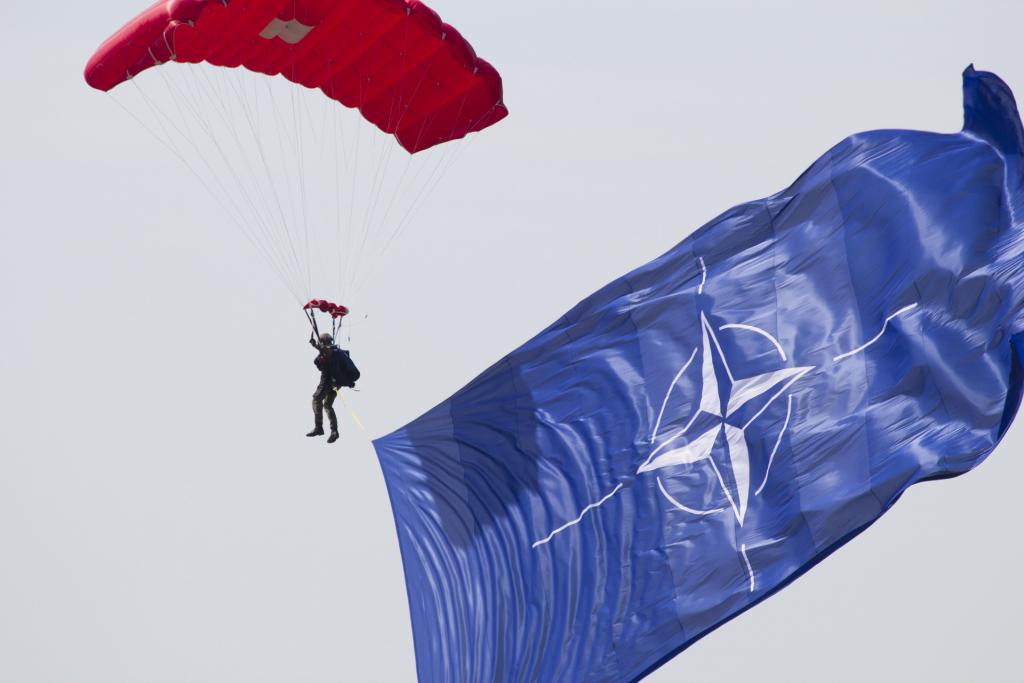By Maria (Mary) Papageorgiou
PhD Candidate in International Relations, University of Minho, Portugal
Integrated Member of the Research Centre for Political Science (CICP)
The coronavirus outbreak affected every facet of everyday life, causing significant changes in the world economy, healthcare, and social activities. NATO has identified for years now the threat of potential health risks, and their impacts on planning and operations. However, health risks fall under the broader context of “environmental hazards” in NATO’s Strategic Concept. Even though crisis management is one of NATO’s core tasks and the organization has established various emergency response mechanisms such as the Euro-Atlantic Disaster Response Coordination Centre (EADRCC) to assist its members UN retains the primary role in coordinating international disaster relief.
The coronavirus crisis showed that the alliance is not immune to the disease in its political, economic and operational functions. Human security has arisen as the main concern during the pandemic not only for civilians but also for military personnel that have seen an increasing number of infections. Under new security considerations, states have drafted in their national forces to assist local authorities to tackle the crisis, thus limiting their deployment on overseas duties. On top of that, Norway called off the “Cold Defender” exercise due to coronavirus concerns while another major exercise “European Defender” was modified in size and scope. In the meantime, the US European Command has announced that other long-planned exercises will be postponed or cancelled. Moreover, UK, Germany and Netherlands have withdrawn part of their forces from NATO’s training mission in Iraq which has been halted, and the Pentagon ordered all US forces abroad to stay put for 60 days as of March 26. All in all, the nature, capacity and planning of NATO military operations is also contingent on states’ weighing their national priorities on how to use their military forces in the near future.
The challenges facing the Euro-Atlantic alliance today are centered primarily on five areas: US leadership, funding, security risks from the use of bioweapons by terrorists, the disinformation campaigns of China and Russia, and the growing frictions among NATO allies that could pose wider security implications.
US leadership and organizational coordination
The unilateral approach adopted by the US leadership in dealing with the coronavirus pandemic is one of NATO’s concurrent challenges. The American president announced on April 14, 2020, that the World Health Organization (WHO) was “severely mismanaging and covering up” the coronavirus crisis, deciding to halt the American funding to the organization; a decision denounced by the European allies. NATO has been working closely with the WHO in countering the pandemic and safeguarding the health of its personnel. However, the apparent US decline as a leading global power and some of its unpredictable, erratic decisions threaten coordinated action for fighting the pandemic, and they could affect unity and cohesion of the alliance during and after this crisis.
Funding
Funding has long been a point of contention among NATO members, since not all states meet the 2% target from the national GDP for the alliance’s defense spending. The Secretary-General of NATO, Jens Stoltenberg on March 19, 2020, stressed the issue: “I expect Allies to stay committed to investing more in our security”. However, the impact of the coronavirus on the economic prosperity of states will pose further challenges on government spending and resource allocation since economic growth is expected to decrease for most countries. Therefore, reaching the 2% target might be more difficult in the years to follow, thus reigniting the debate about burden-sharing and testing the willingness of the United States to keep its forces in Europe. Hence, the need for reintroducing smart defense mechanisms (introduced in 2012 and accounting for pooling and sharing capabilities, setting priorities, and improved coordination) and a collective approach to security would become more prominent than ever.
This is an excerpt. To read the full article, visit The Global.
Interested in contributing to our blog? Here is how.


